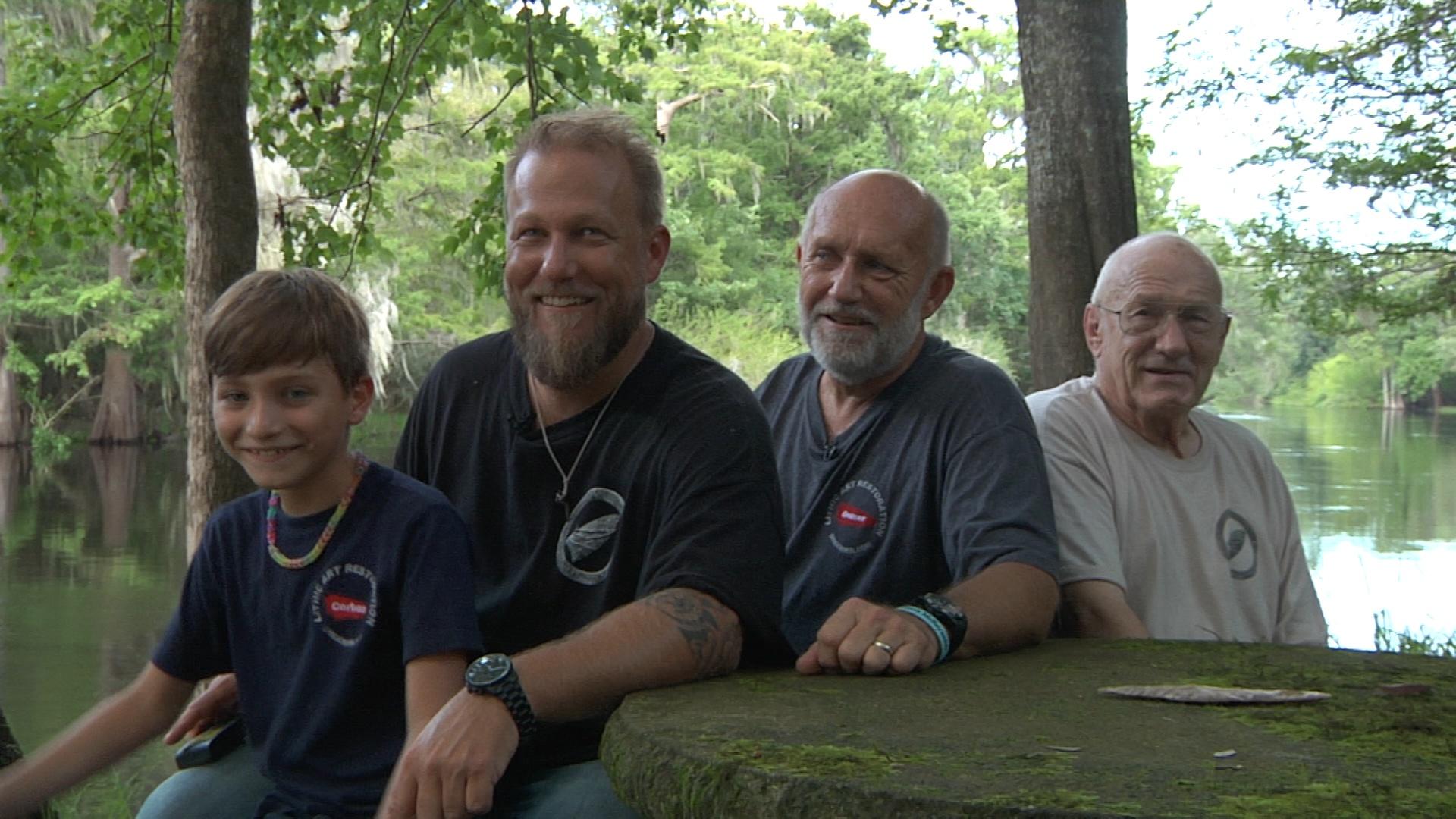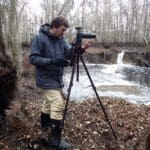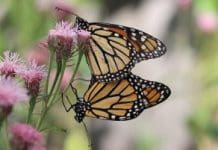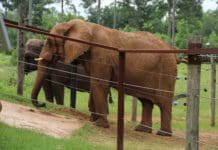

When Rob Diaz de Villegas produced his underwater archeology on the Wacissa piece, he was given one condition by researcher Morgan Smith; he couldn’t use the site name. The reason? The researcher didn’t want to reveal his exact location for fear of attracting looters. It can be a problem because Florida protects archeological sites and all artifacts found in waterways.
Guy “Harley” Means of the Florida Geological Survey explains, “As it currently stands today in Florida, all of the river ways and all of the lake bottoms are what’s called “state-sovereignty” land. It is land that belongs to the State of Florida, to the people. And it is currently illegal to remove even isolated artifacts that they find, either along a river course or along, for instance, a lake that is eroded out of a bank.”
Means and his brother discovered Morgan Smith’s site and while he believes the law should protect archeological sites, he does think isolated object should be governed differently. It’s a matter of context.
Says Means, “The science of archeology is based upon looking at assemblages of implements. It is the association with all those different kinds of implements in a stratigraphic context that can actually give archeologists some information about the cultural time period or the culture, or the people that were living at that particular site at a given time.”
Teben Pyles, President of the Tri-State Archeological Society, adds “Most of the things, when we talk about isolated context or out of context, eroded into a channel bed or even close to an area, maybe downstream of a kill site. The problem is that it’s tumbled so far away from its data-rich environment.”
When an item moves away from its original location and is found mixed in with a beer can or a pop-top or other more recent things, not much can be gleaned about the item’s relationship to place or specific people.
“So now we’re all outlaws if we find something of historical significance in the waterways or along the embankments of a waterway,” says Teben Pyles.
The Pyle family has four generations of archeology enthusiasts. They are passionate about Paleolithic artifacts, but state law prohibits them from collecting artifacts in or by the Santa Fe River, which runs by Thornton Pyle’s house.
“Before 1967, everything was legal,” says Thornton. “But in the time I moved here in ’86, it was a gray-zone. It was like, “Yeah, it’s against the law, but nobody’s enforcing this.””
Teben adds, “There was already an informal partnership with the professional and the amateur. And they already had an informal working arrangement, and it wasn’t until back in the 90’s, I believe, when a lot of the old-timers were able to bring information to where they found certain things if there were still question marks on it.”
At one time, there was a state program called the “isolated finds” policy that allowed river divers to collect these, and in return they would make a report to the State, which would then have the first right-of-refusal. That policy only lasted five years.
Harley Means says, “Had the isolated finds policy and program not been in place, the site that my brother and I discovered would not have been reported – nor would over 10,000 artifacts that were reported to the state.”
Teben Pyles thinks that as amateurs, citizen scientists should have the right to recover something isolated and out of context. Amateurs don’t replace the professionals and an understanding of the importance of both kinds of archeologists collaborating and forming unbiased partnerships serves the public best.
Teben would still protect parks and sites like Morgan Smith’s. “Zero-tolerance zones. There’s no amateur that’s going to stick up for another person who went and dug up a grave, and this is a deemed reserve site that’s a park or something like that. Those are zero-tolerance zones.”
A permitting system makes sense to Harley Means. “If you had a permit system and enough people paying into that permit system, you could provide the funding for a position to oversee this permit program. You could allow professionals and avocationals to communicate their information, do outreach. You could really engage this group of people who are incredibly passionate about archeology and paleontology.”
Both Means and the Pyles think change would benefit future generations’ interest in archeology. Teben says, “Some people go to the beach as a family. For some people, they wait up for vacations or whatever. We were constantly, always doing stuff together and I learned so much starting at his age (referencing his son) that I took for granted when I was younger.”
For more information on this story, please visit the WFSU Ecology Blog.
Rob Diaz de Villegas is a senior producer for television at WFSU Public Media, covering outdoors and ecology. After years of producing the music program OutLoud, Rob found himself in a salt marsh with a camera, and found a new professional calling as well. That project, the National Science Foundation funded "In the Grass, On the Reef," spawned the award-winning WFSU Ecology Blog. Now in its tenth year, the Ecology Blog recently wrapped its most ambitious endeavor, the EcoCitizen Project.
Rob is married with two young sons, who make a pretty fantastic adventure squad.





